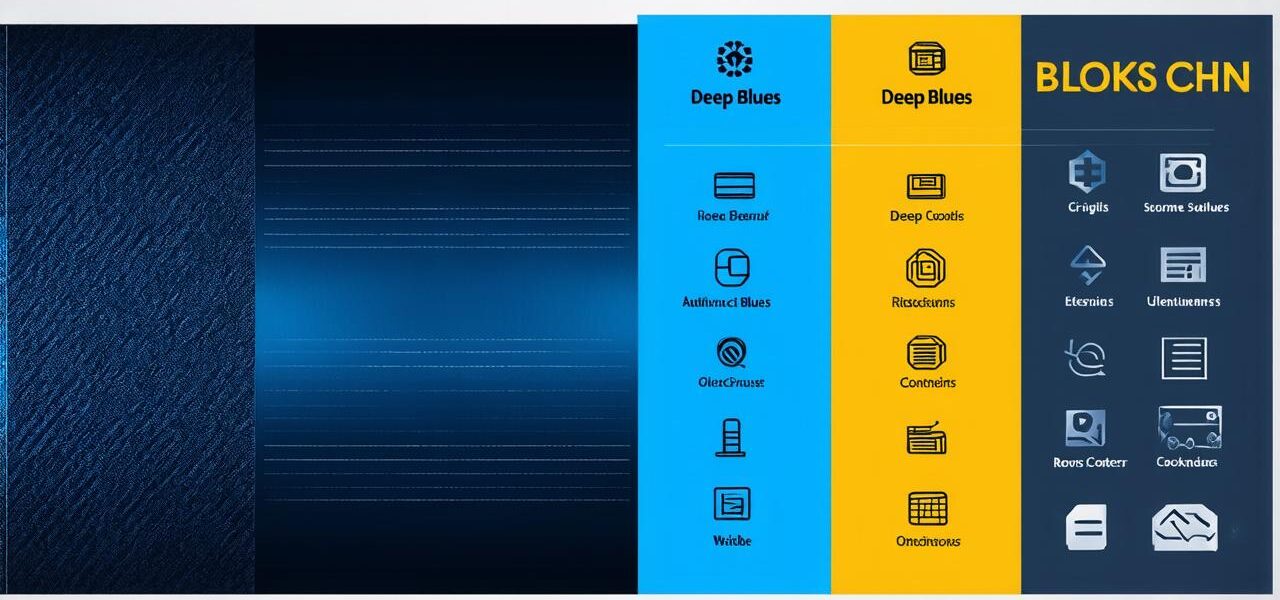
Exploring Blockchain Development: A Comprehensive PowerPoint Guide
Blockchain development is an exciting and rapidly growing field that has the potential to revolutionize the way we store and share data. This comprehensive powerpoint guide will provide you with a deep understanding of blockchain technology, including its key concepts, use cases, and challenges.
What is Blockchain Development?
Blockchain development involves building decentralized applications (dApps) that run on blockchain technology. These dApps allow users to transact with each other without the need for intermediaries, such as banks or governments. This makes blockchain technology ideal for scenarios where trust is an issue, such as financial transactions, supply chain management, and voting systems.
Key Concepts of Blockchain Development
There are several key concepts that you should understand before diving into blockchain development. These include:
- Distributed ledger: A distributed ledger is a database that is spread across multiple computers. It allows all users to access and update the same information, making it secure and transparent.
- Block: A block is a unit of data that contains transactions and other information. Each block is linked to the previous one using a cryptographic hash function, creating an unalterable chain of blocks.
- Nodes: Nodes are computers that participate in the blockchain network by verifying transactions and adding them to the distributed ledger.
- Smart contracts: Smart contracts are self-executing contracts with the terms of the agreement between buyer and seller being directly written into lines of code.
- Mining: Mining is the process of validating transactions on a blockchain network. Miners use powerful computers to solve complex mathematical problems, which rewards them with newly minted cryptocurrency.
Use Cases of Blockchain Development
Blockchain technology has numerous potential use cases across various industries. Some of the most popular include:
- Financial services: Blockchain can be used for faster and more secure financial transactions, such as cross-border payments and stock trading.
- Supply chain management: Blockchain can provide transparency and traceability in supply chains, allowing companies to track products from production to delivery.
- Voting systems: Blockchain can be used to create secure and transparent voting systems that are resistant to tampering and fraud.
- Identity verification: Blockchain can be used for secure and decentralized identity verification, making it easier for individuals to verify their identity without the need for intermediaries.
- Healthcare: Blockchain can be used for secure storage and sharing of healthcare data, allowing for better patient outcomes and more efficient healthcare systems.

Challenges of Blockchain Development
While blockchain technology has numerous potential benefits, it also faces several challenges that must be addressed. These include:
- Scalability: Blockchain networks can become slow and expensive to use as they grow in size. Solutions such as sharding and off-chain scaling methods are being developed to address this issue.
- Regulation: Governments and regulatory bodies around the world are grappling with how to regulate blockchain technology, which presents legal and compliance challenges for businesses.
- Security: While blockchain is secure by design, it is not immune to attacks. Hackers have targeted blockchain networks in the past, highlighting the need for robust security measures.
- Interoperability: Different blockchain platforms and tools can be incompatible with each other, making it difficult to build integrated systems.
Popular Blockchain Platforms and Tools
There are several popular blockchain platforms and tools that you should be familiar with when developing blockchain applications. These include:
- Ethereum: A decentralized platform for building dApps using smart contracts.
- Bitcoin: The first cryptocurrency and the largest blockchain network by market capitalization.
- Hyperledger Fabric: A permissioned blockchain platform designed for enterprise use cases.
- Truffle: A development environment and testing framework for building Ethereum dApps.
- Remix: An online IDE for developing and testing smart contracts on the Ethereum network.
Real-Life Examples of Blockchain Development
There are numerous real-life examples of blockchain technology being used in various industries. Some of these include:
- Cryptocurrencies: Bitcoin, Ethereum, and other cryptocurrencies have revolutionized the way we think about money and have opened up new opportunities for businesses and individuals.
- Supply chain management: Blockchain is being used by companies such as Walmart and DHL to provide transparency and traceability in supply chains.
- Voting systems: Blockchain technology is being explored as a potential solution for secure and transparent voting systems.
- Identity verification: Blockchain is being used for decentralized identity verification, making it easier for individuals to verify their identity without the need for intermediaries.
- Healthcare: Blockchain is being used for secure storage and sharing of healthcare data, allowing for better patient outcomes and more efficient healthcare systems.
FAQs
What is blockchain development?
Blockchain development involves building decentralized applications (dApps) that run on blockchain technology.
What are the key concepts of blockchain development?
The key concepts of blockchain development include distributed ledger, block, nodes, smart contracts, and mining.
What are some use cases of blockchain development?
Blockchain technology has numerous potential use cases across various industries, including financial services, supply chain management, voting systems, identity verification, and healthcare.
What are the challenges of blockchain development?
Blockchain development faces challenges such as scalability, regulation, security, interoperability, and lack of standardization.
What are some popular blockchain platforms and tools?
Some popular blockchain platforms and tools include Ethereum, Bitcoin, Hyperledger Fabric, Truffle, and Remix.
What are some real-life examples of blockchain development?
Real-life examples of blockchain technology being used in various industries include cryptocurrencies, supply chain management, voting systems, identity verification, and healthcare.



